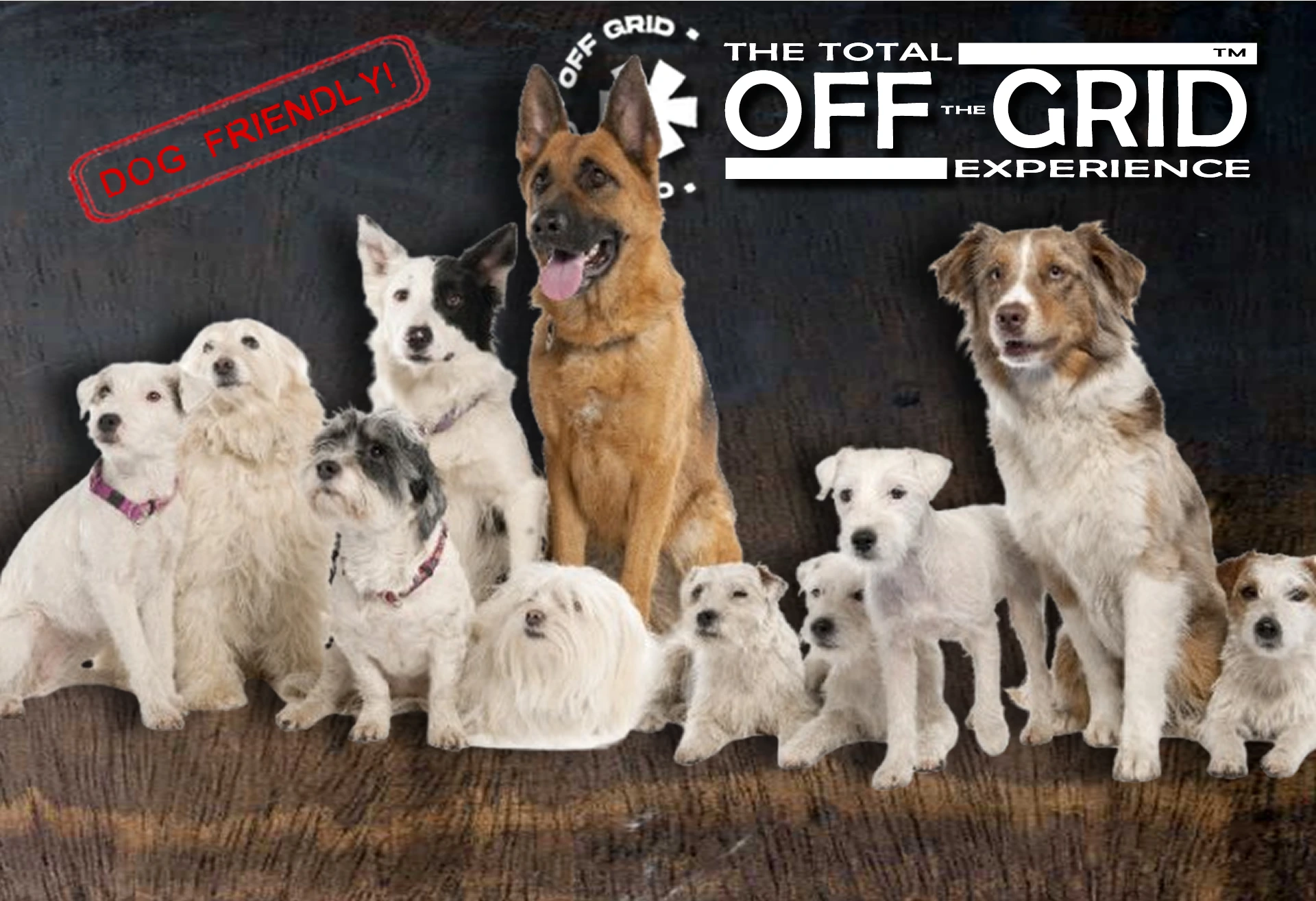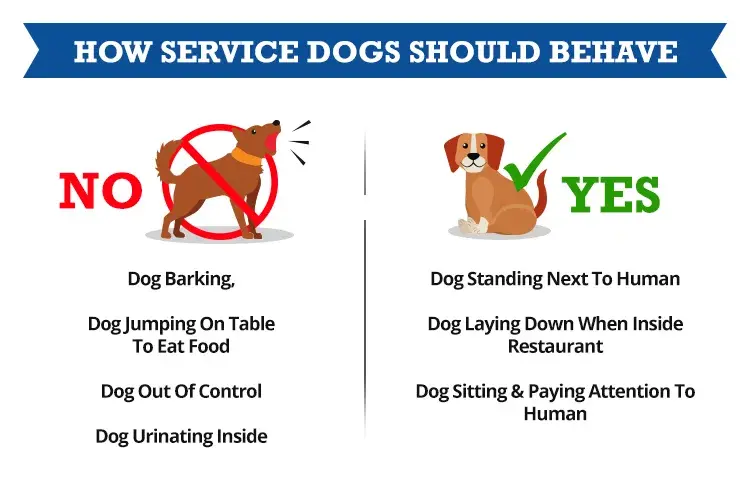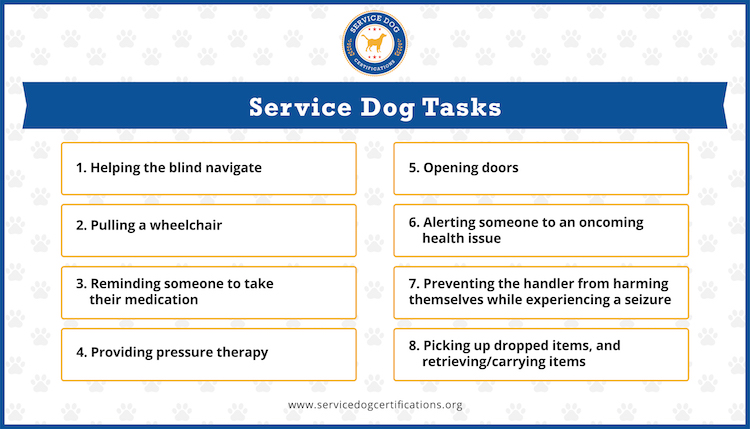Dog Friendly
Because they are family too!

Here are seven (7) basic rules for taking your dog to "The Total Off-Grid Experience Canine Edition".
1. If your dog’s a full-time barker, leave it at home.
Your desire to bring your dog with you does not trump the comfort of other guests. If your little terrier has a tendency to bark incessantly, it’s not wise to bring it along on your trip. Everyone loves their pet, but if there’s a dog that keeps barking the whole time, it’s considerate to pack up and head home. A few barks are fine — they’re dogs, after all — but if it’s constant, your dog might not be suited for vacation.
2. If you leave the room, put up the Do Not Disturb sign.
Most hotels/motels make it clear that you’re not allowed to leave your dog unattended. However, "The Total Off-Grid Experience" understands there are times when it’s necessary. If you opt to leave your pooch alone, check on them regularly to ensure they have plenty of water, especially in the desert. Also, make sure there’s no damage or accidents. Protect hotel employees and yourself by putting up the Do Not Disturb sign. This way, you avoid unnecessary problems.
3. You’re responsible for your dog and whatever trouble they cause.
You’re not a rock star. If your dog has an accident, clean it up and alert the staff. If your furry pal chews up a lamp cord, it’s your responsibility to pay for it. The hotel was kind enough to let you bring your four-legged friend, so ensure it’s a respectful guest.
4. Bring your own food and don’t share the room service.
A dog’s diet needs to be consistent to avoid digestive problems. A hotel stay is no time to experiment with different foods. Pack your dog’s regular food to maintain consistency. Even if you give your dog human food at home, keep the room service to yourself to avoid any health issues.
5. Toys, Beds, and the Comforts of Home
Packing your dog’s bed, toys, and other comforts can make them feel at home. Some dogs are happy anywhere, while others get finicky. Giving them a sense of home can make for a better hotel experience. Your furry friend might be unsure at first, but soon they’ll be chewing bones and laying in the sunlight just like at home.
6. Make it special.
Remember, this is a vacation for Fido too! Even though you’re creating a connection to home with food, toys, and beds, you can still do special things to make it feel like a vacation. If they’re never allowed on the bed at home, maybe make an exception for a night. Take them for a nice, long walk to explore the new surroundings. Creating a fun environment can make your dog look forward to traveling.
7. If your dog is NOT friendly with other dogs or strangers, LEAVE YOUR DOG HOME.
This facility is not a training ground for unruly dogs. If your dog is violent or has violent tendencies, we will cancel your reservation and ask you to leave. Your reservation fee and other fees will be returned, except for taxes. Your deposit will be returned in full. We understand misunderstandings happen, but allowing these types of dogs can cause damage, complaints, or worse, a bite incident.
Dog bites can have severe consequences. In Nevada, strict liability laws hold dog owners accountable for injuries caused by their pets. This means if a dog bites someone, the owner is responsible, regardless of the dog’s past behavior. Victims have the right to seek compensation for medical bills, lost wages, and pain and suffering. Owners must take precautions to prevent attacks, such as leashing and secure fencing. Even if a dog has no history of aggression, the owner can still be held responsible for a bite.
By following these rules, you and your pooch will have a fantastic time at "The Total Off-Grid Experience Canine Edition"!
![]() Legally reviewed by: Fiona Duffy, Esq. (This link will open a new tab or window)
Legally reviewed by: Fiona Duffy, Esq. (This link will open a new tab or window)
Lodging Rights for Service Dogs
In this explanation, The words "Lodging", "Lodges", "Lodge", et all, will imply, Any form of temporary accomodations or housing provided by any entity or individuals for pay. These would include, but not limited to Motels, AirB-N-B's, Hotels, RV Parks, and Lodges.
Just like everyone else, service dog owners will stay at a Lodge every so often. When they do, they can bring their service dogs with them for the duration of their stay. No matter how extravagant or simple the Lodging is, the service dog must be allowed to remain with its owner as defined by the Americans with Disabilities Act (ADA).
The ADA defines a service animal as a dog individually trained to provide help to an individual with a disability. Their assistance allows an owner to perform a task that they are unable to perform themselves. Therefore, service animals are not pets because they serve a specific and essential medical function.
Service dogs may accompany their owners wherever they go. Due to this right, federal regulations let service dogs into public areas, like places for Lodging. Lodges aren’t permitted to decline the presence of a service dog within their business, even with a “no pets” policy in place — the Lodge’s pet policies do not apply to service dogs.
What Questions Can a Lodge, Hotel, Motel, AirB-N-B facility Ask?
If a service dog’s function isn’t immediately apparent, like a guide dog, employees may only ask the dog owner two questions:
1. Is your dog a service dog?
2. If your dog is a service dog, what service does it provide?
It’s against federal regulations for Lodging employees to ask for any proof, like a certificate or license. Due to privacy laws regarding health and disabilities, employees aren’t allowed to inquire about the service dog owner’s qualifying disability.
Most Lodging employees are aware of ADA and service dog regulations. However, some staff may be unfamiliar, ask too many questions, or behave inappropriately. If this occurs, a dog owner can politely ask to speak to their supervisor.
Can a Lodging Facility Make Limitations Regarding Your Hotel Experience?
"Lodge Facilities cannot isolate service dogs and their owners from other guests or restrict them to certain rooms."
A hotel isn’t allowed to restrict a service dog owner from amenities that other customers can access. For example, the restaurant areas of a hotel should be accessible to a service dog and its owner. Shopping areas and hotel grounds should also be open to service dog owners.
The image below are 8 (eight)common Service Dog Tasks
Can a Lodge Charge Extra Fees for Having a Service Dog?
Lodgess are not allowed to charge fees for a service animal that guests without a service animal don’t have to pay.
A Lodge can’t charge a fee that wouldn’t apply to patrons without a service dog. For example, a lodge may charge for the repairs for damages incurred by a service dog. However, those same fees would also apply if a non-disabled person would be charged for the same damages.
Lodge owners and their employees should think of a service dog as an extension of a person’s effort to overcome a disability, rather than an animal. It would be wrong to charge a person with a disability a fee for their cane or wheelchair; thus, the same applies to a service dog.
When Can a Lodging Facility Limit or Refuse Services Due to a Service Dog?
Lodges can refuse customers whose service dog behaves aggressively or becomes disruptive.
There’s a reason why service dogs undergo extensive training. Poor behavior by a service dog can compromise their ability to do their job. These dogs are around the public more than other dogs and, and need to be safe at all times.
If a service dog growls or barks at other customers, the hotel can ask the owner to remove the service dog from the premises.
Other facilities may also refuse entry to a service dog in sterile settings. For example, a medical area where surgery is performed can be considered a location where a service dog isn’t allowed.

(image supplied by servicedogcertifications.org)
What is a Service Dog Owner’s Responsibility in a Lodging Facility?
The Lodging Facility employees aren’t obligated to care for the service dog. The dog’s needs have to be met by its owner. Feeding, exercising, grooming, and toileting the dog is the owner’s responsibility.
A service dog needs to be under the owner’s control throughout the entire stay. The dog should always have a leash or a harness unless it interferes with its tasks. The employees and guests aren’t allowed to feed, pet, or play with the service dog. Also, service dogs should be in the presence of their owner at all times. Leaving a service dog alone in a hotel room can endanger hotel staff and put the legitimacy of the service in question.
Visiting Hotels with Your Service Dog
When staying at a lodge with your service dog, be firm but courteous towards the hotel employees and other guests. Recognizing a service animal might be difficult at first. The ADA doesn’t require service dogs to be registered or have a certificate. However, having the appropriate documentation on hand can reduce the need for clarification between service dog owners and lodging employees. Registering a service dog can help make fulfilling their task easier for you and them.
If initially there is tension between a hotel employee and a service dog owner, it’s best to remain calm and explain the legal rights of service dog ownership. Bad experiences in the past may have shaped the employee’s views. Setting a good example and presenting a well-trained service animal may help overcome any disagreements left in the room.
Distinguish your Service Dog from a Pet
Many lodging Facilities have policies against pets, but service dogs are not pets. An ID can help distinguish your service dog from a pet, ensuring you get access to your room and other Lodging facilities without hassle.
Under the ADA, Lodging Facilities can’t require documentation for service dogs, but having an ID card can simplify interactions with the staff who may not be familiar with service dog laws.
Remember, while ID cards, certificates and other documents can be helpful, they do not convey any rights under the ADA.
